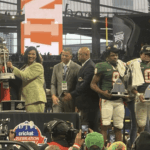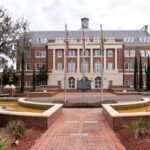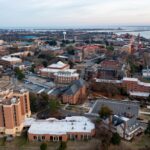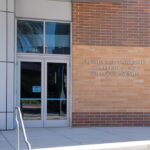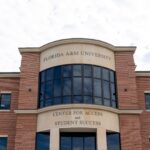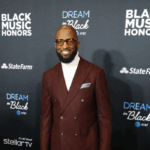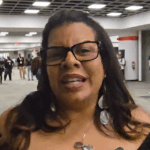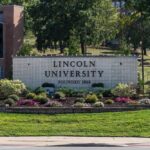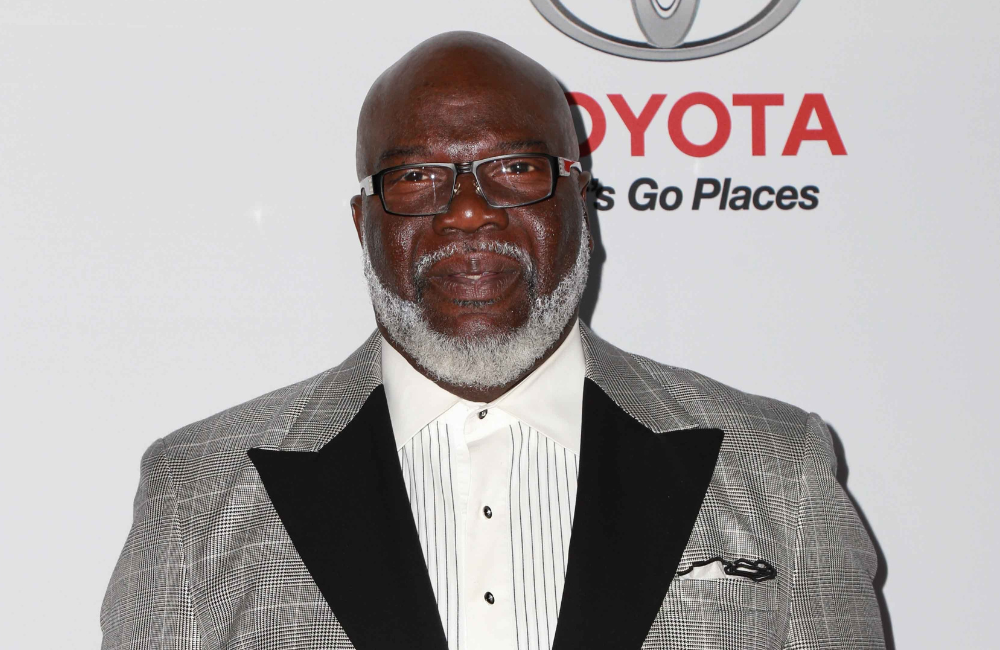
Megachurch leader’s $100,000 gift powers workforce training at Atlanta HBCU
The 58 graduates sitting in Saint Philip A.M.E. Church on a warm Atlanta morning this May expected Bishop T.D. Jakes to deliver the usual commencement wisdom about perseverance and purpose. Instead, the Dallas megachurch pastor handed Morris Brown College something far more valuable: a $100,000 commitment that would reshape how the historically Black institution prepares students for today’s job market.
The announcement on May 17 sent ripples through the packed sanctuary, where family members wiped away tears and faculty members exchanged knowing glances. For Morris Brown, a college that has clawed its way back from near-extinction, Jakes’ surprise donation represented more than financial support — it validated two decades of relentless institutional rebuilding.
The bishop’s gift targets professional certification programs that will fund more than 150 examinations across high-demand career fields. From cybersecurity credentials to healthcare administration licenses, these certifications offer Morris Brown graduates the kind of market-ready skills that translate directly into paychecks and career advancement.
Building tomorrow’s workforce through strategic partnerships
Morris Brown’s leadership has embraced workforce development as its north star, recognizing that modern students need more than theoretical knowledge to compete in an economy that prizes specific technical abilities. The certification initiative addresses a persistent challenge facing historically Black colleges and universities: bridging the gap between classroom learning and employer expectations.
For many Morris Brown students — first-generation college graduates navigating unfamiliar professional terrain — these industry-recognized credentials provide tangible proof of competency that opens doors in competitive job markets. The program spans information technology, healthcare, business management and emerging fields where demand consistently outpaces qualified candidates.
This approach reflects broader shifts in higher education, where traditional liberal arts foundations increasingly pair with practical skills training. Morris Brown has positioned itself at the forefront of this evolution, betting that career-focused programming will attract students while satisfying employers hungry for diverse talent.
The college’s strategy acknowledges economic realities facing HBCU graduates, who often carry heavier student debt burdens while entering job markets where networking connections may be less readily available. Professional certifications level playing fields by establishing objective measures of capability that transcend social connections.
From collapse to comeback: Morris Brown’s remarkable resurrection
The bishop’s investment arrives as Morris Brown continues its extraordinary recovery from institutional collapse. The college lost accreditation in 2003 amid financial mismanagement and plummeting enrollment, circumstances that transformed a vibrant campus into a cautionary tale about governance failures at historically Black institutions.
For nearly two decades, Morris Brown operated in academic limbo, unable to offer federal financial aid while struggling to maintain basic operations. The recent accreditation restoration in 2022 marked a watershed moment, validating years of financial restructuring, academic program overhauls and sustained community support from alumni who refused to abandon their alma mater.
The Wolverines’ comeback story exemplifies resilience that characterizes many HBCUs navigating contemporary challenges. When Limestone University announced its sudden closure this spring, Morris Brown immediately opened enrollment to displaced students, demonstrating the collaborative spirit that strengthens the entire HBCU network.
This institutional generosity, even amid ongoing recovery efforts, illustrates values that distinguish historically Black colleges from predominantly white institutions. Morris Brown’s leaders understand that HBCU survival depends on collective success rather than individual competition.
Jakes preaches ambition over comfort in commencement challenge
Throughout his address, Jakes emphasized persistence over privilege, urging graduates to maintain determination when confronting inevitable professional obstacles. His message resonated powerfully with an audience that had witnessed their institution’s dramatic transformation firsthand.
The bishop’s own trajectory from rural West Virginia poverty to international prominence provides compelling evidence for the principles he advocates. His multimedia empire encompasses publishing, television production, real estate development and global ministry operations that generate millions in annual revenue.
Jakes specifically challenged graduates to pursue ambitious goals: launching businesses, discovering medical breakthroughs, developing franchise operations and achieving financial independence. These aspirations, he argued, require the same tenacity that enabled Morris Brown’s institutional comeback.
The bishop’s entrepreneurial philosophy aligns with Morris Brown’s workforce development focus, emphasizing practical skills that translate into economic mobility. His donation reinforces this message by funding credentials that provide immediate career advantages rather than abstract academic achievements.
Celebrity spotlight illuminates Atlanta’s HBCU excellence
The spring commencement season positioned Atlanta as a magnet for high-profile HBCU engagement, with prominent figures delivering messages across the city’s historically Black institutions. While Jakes addressed Morris Brown, other influential voices spoke at neighboring colleges throughout Atlanta’s academic corridor.
Dr. Cornel West challenged Morehouse College graduates to confront systemic inequalities, while Academy Award nominee Taraji P. Henson emphasized networking strategies to Spelman College’s graduating class. This concentration of celebrity attention highlighted the continued cultural significance of Atlanta’s historically Black colleges.
These appearances reflect growing recognition of HBCUs as platforms for addressing contemporary social and economic challenges. Celebrity endorsements provide visibility that translates into increased applications, donor interest and sustained public support for institutions that have historically operated with limited resources.
The star power also generates media coverage that amplifies institutional achievements, helping counter persistent stereotypes about HBCU quality and relevance. For Morris Brown, Jakes’ presence and donation provide validation that extends far beyond financial impact.
Corporate investment drives HBCU infrastructure renaissance
Jakes’ contribution joins expanding corporate investment in HBCU infrastructure and programming, with companies like Chick-fil-A directing substantial resources toward Morris Brown’s revitalization. These partnerships recognize both social responsibility obligations and strategic recruitment opportunities in developing diverse talent pipelines.
Such collaborations address persistent funding disparities between historically Black institutions and predominantly white colleges. Federal and state support, while increasing through recent legislative initiatives, remains insufficient to close resource gaps that affect everything from laboratory equipment to dormitory maintenance.
The workforce development focus of Jakes’ donation aligns perfectly with corporate interests in cultivating qualified candidates who bring unique perspectives and demonstrated work ethics. Employers increasingly recognize that HBCU graduates enhance organizational performance through diverse viewpoints and strong determination.
Sustainability through strategic vision and community support
Morris Brown’s leadership views external support like Jakes’ donation as catalytic rather than sustaining, aiming to develop self-sufficient revenue streams through expanded enrollment, innovative programming and strategic industry partnerships. The institution’s long-term survival depends on demonstrating clear value propositions to prospective students and their families.
Professional certification programs represent one approach to this challenge, providing immediate career benefits that justify educational investments. As HBCUs navigate evolving higher education dynamics, Morris Brown’s experience offers valuable lessons about institutional adaptation and community engagement.
The college’s comeback story illustrates how strategic leadership, external support and unwavering commitment can overcome seemingly insurmountable obstacles. For the 58 graduates who witnessed Jakes’ announcement, the bishop’s gesture embodied the transformative potential that defines the HBCU experience at its finest.
Jakes’ investment in Morris Brown transcends mere financial contribution, representing confidence in the institution’s future and recognition of its historical importance in developing Black leadership. As the college continues rebuilding, this support provides both practical resources and symbolic validation of its mission.
Sort By
 Register for exclusive access to VIP events and more
Register for exclusive access to VIP events and more
Sign up for periodic updates, special discounts, and more!




